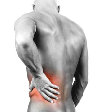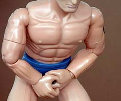MBBS, FRCS, FICS, FAMS (Urology)
Senior Consultant & Board Certified Urologist (Singapore)
Gleneagles Medical Centre #09-18, Singapore 258499
Tel: +65 647 52512
S H HO UROLOGY AND LAPAROSCOPY CENTRE
Cutting Edge Urology Care with Compassion
Symptoms suggestive of common urology problems
Common Conditions
Urology conditions or problems may present with one or a combination of the following symptoms. These are the most common
symptoms that warrant a consultation with the urologist. They are by no means exhaustive nor conclusive.
The four most common
urology symptoms are:
1. Urine related symptoms
2. Pain related symptoms
3. Lump related symptoms
4. Abnormal blood test for PSA ( prostate specific antigen ), without any symptoms
1. Urine related symptoms
2. Pain related symptoms
3. Lump related symptoms
4. Abnormal blood test for PSA ( prostate specific antigen ), without any symptoms
Urology Procedures
Laser Surgery
Opening Hours:
Monday - Friday
9am to 5pm
Saturday
9 am to 1 pm
Sun / Public Holiday
Closed
Urine related symptoms
Blood in the urine
Blood in urine is not normal. It may be obvious as passage of red colored urine or silent and only detected through a urine test.
In either case, it is considered a significant urology problem that needs further evaluation, especially so in anyone above 50 years
old because urinary tract cancers need to be excluded. Causes of blood in the urine include:
- urine infection
- stone in the urine system
- kidney diseases such as kidney inflammation
- bladder cancer
- prostate cancer
- prostate enlargement
- urine infection
- stone in the urine system
- kidney diseases such as kidney inflammation
- bladder cancer
- prostate cancer
- prostate enlargement

Blood in urine
Frequent passing of urine
Passage of more than 8 times of urine over 24 hours or more than 3 times in a night is considered excessive and frequent. It can be
disturbing and disrupting. Frequent urination is indicative of a bladder disorder. In rare cases, it is attributed to excessive consumption
of water of more than 4-5 liters a day. Causes of urine passing of urine include:
- bladder infection
- enlarged prostate (in males)
- overactive bladder or over sensitive bladder
- diabetes
- bladder infection
- enlarged prostate (in males)
- overactive bladder or over sensitive bladder
- diabetes
Obstructed urine flow

Obstructed or sensation of blocker urine flow may be felt if aging men. It is usually a slow progression and indicative of prostate
enlargement. Sudden and complete obstruction may occur if this condition is not treated early. Causes of obstructed urine flow include:
- prostate enlargement
- prostate cancer
- stone in urine tube
- bladder infection
- prostate enlargement
- prostate cancer
- stone in urine tube
- bladder infection
Straining to pass urine or obstructed urine flow
Incontinence or involuntary leakage of urine
Urine incontinence can range from leakage of a few drops of urine to large amount of urine loss leading to complete wetting of the
undergarment. Incontinence can occur during cough or sneezing. It may also happen when a person cannot reach the toilet in time. Causes
of urine incontinence include:
- pelvic floor damage after a difficult delivery or multiple pregnancies
- bladder infection
- enlarged prostate (in males)
- overactive bladder or over sensitive bladder
- dementia or stroke
- pelvic floor damage after a difficult delivery or multiple pregnancies
- bladder infection
- enlarged prostate (in males)
- overactive bladder or over sensitive bladder
- dementia or stroke
Pain when passing urine
Pain before, during and after passage of urine usually indicates a problem in the bladder or urine tube (urethra). The onset of pain
may be very sudden and progresses over several hours. Chronic and low-grade infection of the prostate can persist for several weeks
or months. Causes of pain during urination include:
- bladder infection
- urine tube infection (urethritis, which may be sexually transmitted disease)
- prostate infection or prostatitis
- stone in bladder or urine tube
- bladder cancer
- bladder infection
- urine tube infection (urethritis, which may be sexually transmitted disease)
- prostate infection or prostatitis
- stone in bladder or urine tube
- bladder cancer
Pain related symptoms
Pain over back

Pain over the loin or back can be severe and usually indicates the problem is in the kidney or urine tube connecting the kidney to
the bladder. Sudden and intense pain suggests a urine stone that is obstructing the kidney. Mild discomfort in the loin over a long
period of time may indicate a kidney growth. Causes of pain over the back include:
- kidney stone
- kidney infection
- kidney cancer
- kidney stone
- kidney infection
- kidney cancer
Pain over back
Pain in the groin
Pain over the groin can originate from the bladder or prostate. A problem in the scrotum may also cause pain to be felt in the groin.
A small hernia can cause pain in this area without the appearance of a lump. Causes of pain in the groin include:
- stone in ureter or bladder
- infection in prostate or prostatitis
- bladder infection
- hernia
- varicocele
- stone in ureter or bladder
- infection in prostate or prostatitis
- bladder infection
- hernia
- varicocele
Pain in the scrotum

Sudden pain in the scrotum in a child below 20 years of age is a medical emergency. It may indicate torsion of the testes and would
require urgent surgical attention from the urologist. Pain in the scrotum can also be due to infection of the epididymis. Causes of
pain in the scrotum include:
- infection of epididymis or epididymitis
- torsion testis
- varicocele
- hernia
- testes cancer
- infection of epididymis or epididymitis
- torsion testis
- varicocele
- hernia
- testes cancer
Pain in the scrotum
Lump related symptoms
Lump in the scrotum

Scrotal lumps are always abnormal. A physical examination followed by ultrasound is usually necessary to determine the nature of the
lump. Causes of lump in the scrotum include:
- testes cancer
- hydrocele
- hernia
- varicocele
- chronic epididymis infection
- testes cancer
- hydrocele
- hernia
- varicocele
- chronic epididymis infection
Lump in scrotum
Lump in the groin
A lump in the either groin may or may not be associated with pain. Causes include:
- hernia
- enlarged lymph nodes
- benign skin growth
such as lipoma or sebaceous cyst
Make an appointment by email or Call us at +65 647 52512
